
The Seekers were an Australian folk-influenced pop group originally formed in Melbourne in 1962. They were the first Australian pop music group to achieve major chart and sales success in the United Kingdom and the United States. They were especially popular during the 1960s, with their best-known configuration of Judith Durham on vocals, piano and tambourine; Athol Guy on double bass and vocals; Keith Potger on twelve-string guitar, banjo and vocals; and Bruce Woodley on guitar, mandolin, banjo and vocals.

The New Seekers were a British pop group, formed in London in 1969 by Keith Potger after the break-up of his group, The Seekers. The idea was that the New Seekers would appeal to the same market as the original Seekers, but their music would have pop as well as folk influences. They achieved worldwide success in the early 1970s with hits including "I'd Like to Teach the World to Sing", "You Won't Find Another Fool Like Me" and "Beg, Steal or Borrow."

Melanie Jayne Chisholm, professionally known as Melanie C or Mel C, is an English singer-songwriter, DJ, businesswoman and media personality. As one of the five members of the Spice Girls, she was nicknamed Sporty Spice.

Melanie Anne Safka-Schekeryk, professionally known as Melanie or Melanie Safka, is an American singer-songwriter. She is best known for the 1971–72 global hit "Brand New Key"," plus her 1970 version of "Ruby Tuesday" which was originally written and recorded by the Rolling Stones, her composition "What Have They Done to My Song Ma", and her 1970 international breakthrough hit "Lay Down ".
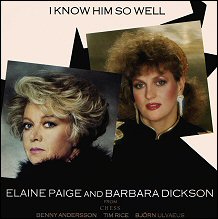
"I Know Him So Well" is a duet from the concept album and subsequent musical Chess by Tim Rice, Benny Andersson and Björn Ulvaeus. It was originally sung by Elaine Paige and Barbara Dickson. In this duet, two women – Svetlana, the Russian chess champion's estranged wife, and Florence, his mistress – express their bittersweet feelings for him and at seeing their relationships fall apart.

Melanie Ruth Blatt, also known as Mel Blatt, is an English singer. She rose to fame in 1997 as a member of the girl group All Saints. The group have gained five UK number-one singles, two multi-platinum albums and two BRIT Awards, and have sold over 10 million records worldwide.
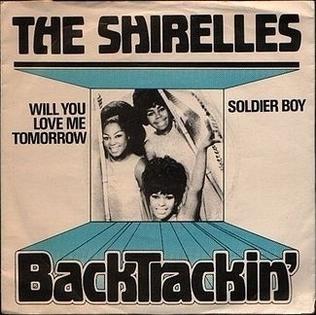
"Will You Love Me Tomorrow", sometimes known as "Will You Still Love Me Tomorrow", is a song with words by Gerry Goffin and music composed by Carole King. It was recorded in 1960 by the Shirelles at Bell Sound Studios in New York City, and hit number one on the Billboard Hot 100 chart. The song was the first by an African-American all-girl group to reach number one in the United States. It has since been recorded by many other artists including a 1971 version by co-writer Carole King.

"You Are Everything" is a soul song written by Thom Bell and Linda Creed and originally recorded by the Philadelphia soul group The Stylistics.

"Blackberry Way" is a 1968 single by British band The Move. Written by the band's guitarist/vocalist Roy Wood and produced by Jimmy Miller, "Blackberry Way" was a bleak counterpoint to the sunny psychedelia of earlier recordings. It nevertheless became the band's most successful single, reaching number 1 on the UK Singles Chart in February 1969.

"Love Is the Drug" is a 1975 song from English rock band Roxy Music's fifth studio album Siren, released as a single in September 1975. Co-written by Bryan Ferry and Andy Mackay, the song originated as a slower, dreamier track until the band transformed its arrangement to become more dance-friendly and uptempo. Ferry's lyrics recount a man going out looking for action.
Peter John Doyle was an Australian pop singer who had success with a number of Top 40 hits in Australia in the 1960s, then success internationally as a member of the New Seekers in the early 1970s, before resuming a solo career in 1973.
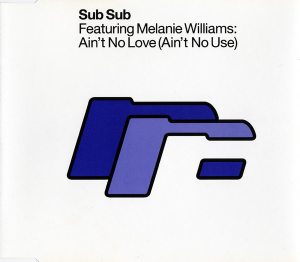
"Ain't No Love (Ain't No Use)" is a song by British dance music act Sub Sub, released on 29 March 1993 as the second single from their debut album, Full Fathom Five (1994). It features Temper Temper's Melanie Williams on vocals. The song was the act's biggest single, reaching number three on the UK Singles Chart, number one on the UK Dance Singles Chart and becoming one of many dance singles in 1993 to cross over into mainstream popularity in the UK. In the accompanying music video, Jimi Goodwin plays bass, Jez Williams plays keyboards and percussion, and Andy Williams plays keytar. After struggling to repeat the success of the single, and after a fire destroyed the band's Ancoats studio in 1996, the group eventually reformed with a radically different sound as Doves in 1998.
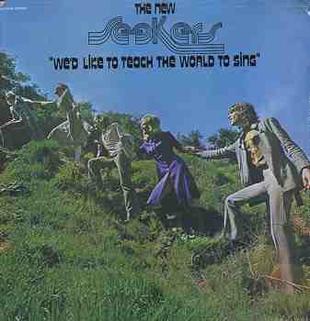
We'd Like to Teach the World to Sing is the name given to two albums by UK pop group The New Seekers. The first of these, released in late 1971, was a repackaging of their previous album New Colours and was released in the US. The second version of the album was released in the UK and Europe in 1972 with a new line-up of tracks. Both albums however contained the song "I'd Like to Teach the World to Sing ".
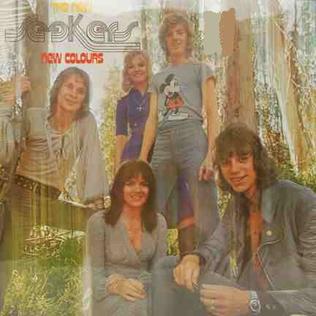
New Colours is a 1971 album by UK pop group The New Seekers. It was their first album released on the Polydor label.
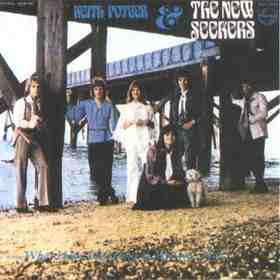
Keith Potger and the New Seekers is a 1970 album by the UK-based pop group The New Seekers. It was the group's second album and their only one to feature the group's founder Keith Potger as a member.
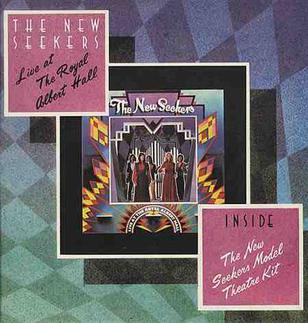
Live at the Royal Albert Hall is a 1972 double-album by British pop group The New Seekers. The album was released in November, having been recorded some months earlier.

Steppin' Out is a 1976 album containing the works of Neil Sedaka. In America it was the third and final album of a trilogy of albums issued by The Rocket Record Company. Outside America Steppin' Out was issued on the Polydor label. In 1998, the Varèse Sarabande label reissued Steppin' Out and included four bonus tracks.

Farewell Album is the final album released by The New Seekers in their early 1970s hit-making line up, released in 1974. It is also the group's last release on Polydor Records.

The Seekers is the seventh studio album by Australian group the Seekers. The album was released in May 1975. Louisa Wisseling provided the vocals. It was the first The Seekers' album not to feature the vocals of Judith Durham. The lead single "Sparrow Song" was released in May 1975, peaking at number 7 on the Kent Music Report. A second single "Reunion" was released in November 1975 and peaked at number 83.
"What Have They Done to My Song Ma" is a song written and performed by Melanie Safka. It was co-written by HM Saffer II, a notable American painter and musician who worked for Warner Brothers Productions.



















